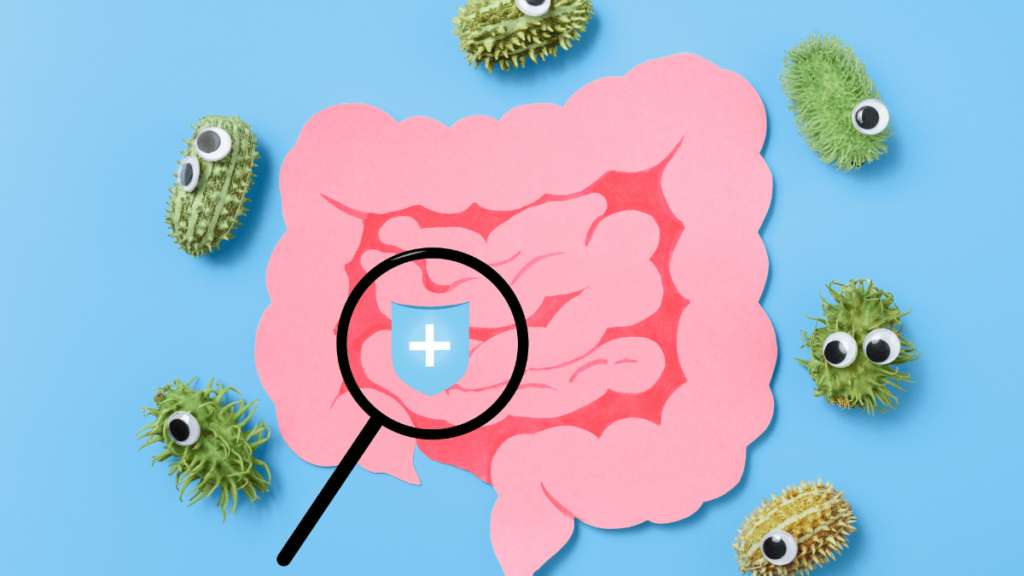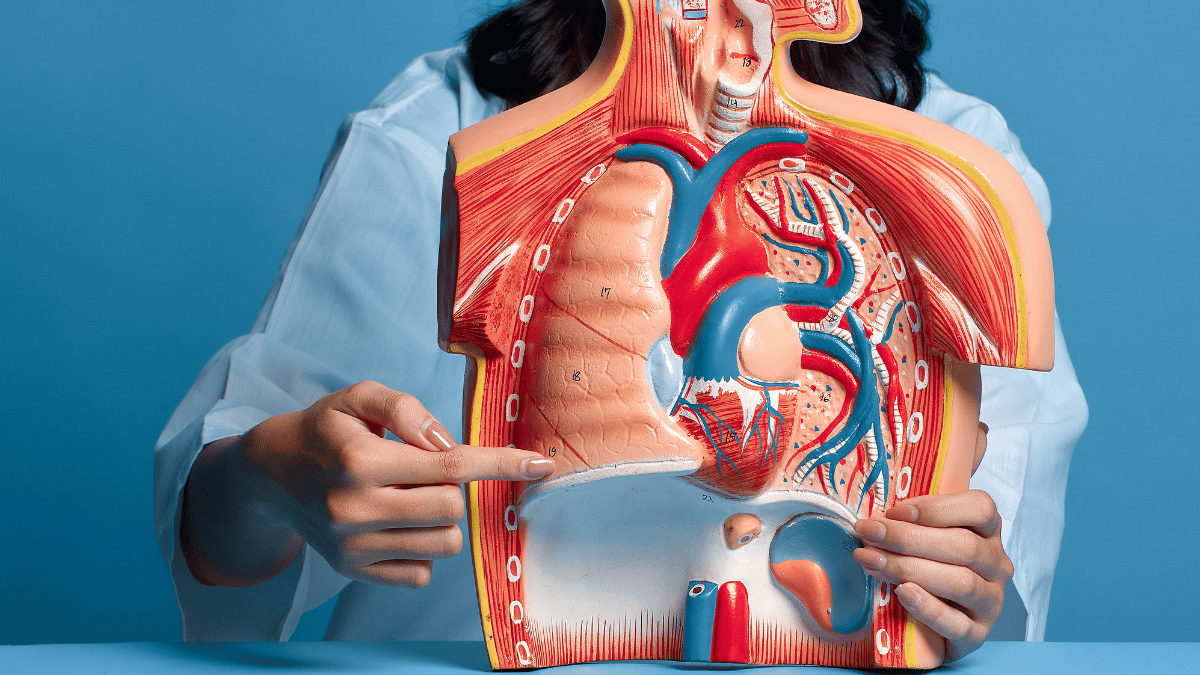Types of Stress
- Acute Stress: Short-term stress that arises from specific events or situations. It’s usually temporary and can be beneficial in small doses, helping you respond quickly to immediate challenges.
- Chronic Stress: Long-term stress resulting from ongoing situations, such as persistent work problems or ongoing financial issues. Chronic stress can lead to significant health issues if not managed effectively.
- Eustress: Positive stress that can motivate and energize you. For instance, the excitement of starting a new job or preparing for a big event can be stress-inducing but also stimulating and fulfilling.
- Distress: Negative stress that can overwhelm and debilitate you, leading to anxiety, depression, or other health problems.
Impact on the Body
When you experience stress, your body undergoes a series of physiological changes as part of the “fight or flight” response. Here’s how stress affects various systems in the body:
- Nervous System: Stress activates the sympathetic nervous system, leading to the release of adrenaline and cortisol. This causes increased heart rate, elevated blood pressure, and heightened alertness.
- Endocrine System: The adrenal glands release cortisol, a hormone that helps manage energy and regulate metabolism. Chronic stress can lead to consistently high cortisol levels, which can impact various bodily functions.
- Cardiovascular System: Prolonged stress can contribute to cardiovascular problems, such as hypertension, heart disease, and stroke. Stress causes blood vessels to constrict, which raises blood pressure and increases the risk of cardiovascular issues.
- Immune System: Acute stress can temporarily enhance immune function, but chronic stress suppresses the immune system, making you more susceptible to infections and illnesses.
- Digestive System: Stress can lead to gastrointestinal issues, such as stomachaches, indigestion, and changes in appetite. It can exacerbate conditions like irritable bowel syndrome (IBS) and inflammatory bowel disease (IBD).
- Musculoskeletal System: Stress often causes muscles to tense up, leading to headaches, neck pain, and back pain. Chronic muscle tension can lead to long-term musculoskeletal problems.
- Reproductive System: Stress can affect reproductive health by altering menstrual cycles, reducing libido, and contributing to fertility issues.
- Mental Health: Chronic stress can contribute to mental health issues such as anxiety, depression, and sleep disorders. It can affect cognitive functions like memory and concentration.
Managing Stress
- Physical Activity: Regular exercise can reduce stress hormones and increase endorphins, which improve mood.
- Relaxation Techniques: Practices such as deep breathing, meditation, and yoga can help calm the mind and body.
- Healthy Diet: Eating a balanced diet can support overall health and improve your ability to handle stress.
- Sleep: Ensuring adequate and quality sleep helps the body recover from stress and maintain emotional balance.
- Social Support: Building and maintaining a network of supportive relationships can provide emotional support and practical help.

How Stress Affects the Digestive System
Stress has a significant impact on the digestive system, primarily through a connection known as the gut-brain axis. Here’s an overview of how stress affects digestion, what the gut-brain axis is, and common digestive symptoms of stress.
The Gut-Brain Axis Explained
The gut-brain axis refers to the bidirectional communication network between the gut and the brain. This complex system involves:
- Neural Pathways: The vagus nerve is a major component of this communication, transmitting signals between the brain and the gastrointestinal (GI) tract.
- Hormones: Stress hormones like cortisol and adrenaline can affect gut function. For example, cortisol can influence the production of digestive enzymes and alter gut motility.
- Immune System: Stress can impact the immune response in the gut, potentially leading to inflammation and changes in gut flora (microbiome), which can affect overall digestion and health.
- Microbiome: The gut microbiome, which consists of billions of microorganisms in the digestive tract, plays a crucial role in digestion and immune function. Stress can disrupt the balance of these microbes, leading to digestive issues.
How Stress Affects Digestion
- Altered Gut Motility: Stress can lead to changes in how the muscles of the digestive tract contract and relax. This can result in either increased motility (leading to diarrhea) or decreased motility (leading to constipation).
- Increased Gastric Acid Production: Stress can stimulate the production of gastric acid, which may contribute to acid reflux or exacerbate conditions like gastroesophageal reflux disease (GERD).
- Altered Gut Permeability: Stress can increase the permeability of the gut lining, sometimes referred to as “leaky gut.” This allows substances to pass through the gut lining into the bloodstream, potentially causing inflammation and immune reactions.
- Changes in Digestive Enzyme Production: Stress may affect the secretion of digestive enzymes, which can impair digestion and nutrient absorption.
- Disruption of Gut Microbiota: Chronic stress can alter the composition of gut microbiota, leading to dysbiosis (an imbalance of gut bacteria), which can affect digestive health and immune function.
Common Digestive Symptoms of Stress
- Abdominal Pain and Cramping: Stress can cause or exacerbate abdominal pain and cramping due to changes in gut motility or increased sensitivity of the digestive tract.
- Diarrhea: Acute stress can speed up the digestive process, resulting in diarrhea. Chronic stress may also lead to persistent loose stools.
- Constipation: Conversely, stress can slow down gut motility, leading to constipation and difficulty in passing stools.
- Nausea: Stress can trigger nausea or an upset stomach, often as a result of increased stomach acid or changes in digestive function.
- Indigestion: Feelings of fullness, bloating, and discomfort after eating may be exacerbated by stress, often due to increased acid production or disrupted digestive processes.
- Acid Reflux or Heartburn: Stress can exacerbate acid reflux or GERD symptoms by increasing stomach acid production or relaxing the lower esophageal sphincter.
- Changes in Appetite: Stress can lead to changes in eating habits, such as overeating (emotional eating) or loss of appetite, which can affect overall digestive health.
Managing Stress-Related Digestive Issues
- Mindfulness and Relaxation Techniques: Practices like mindfulness meditation, deep breathing, and progressive muscle relaxation can help manage stress and its impact on digestion.
- Healthy Eating: Maintaining a balanced diet with adequate fiber, probiotics, and hydration can support digestive health and mitigate stress effects.
- Regular Exercise: Physical activity can help regulate gut motility and reduce stress levels.
- Adequate Sleep: Ensuring sufficient and quality sleep supports overall stress management and digestive health.
- Professional Support: If stress-related digestive symptoms persist, consulting with healthcare professionals such as gastroenterologists or therapists can provide tailored treatment and support.
Certainly! Let’s explore how stress can directly cause diarrhea, the mechanisms behind it, and how to manage it effectively.

Can Stress Directly Cause Diarrhea?
Yes, stress can directly cause diarrhea. The relationship between stress and gastrointestinal symptoms, including diarrhea, is well-documented. Stress influences various aspects of gut function and can lead to changes in digestion and bowel movements.
Mechanisms Behind Stress-Induced Diarrhea
Several mechanisms explain how stress can lead to diarrhea:
- Altered Gut Motility: Stress can affect the contraction and relaxation of gut muscles. The “fight or flight” response often speeds up gut motility, which can result in diarrhea.
- Increased Gastrointestinal Secretions: Stress can stimulate the secretion of gastrointestinal fluids and increase the production of digestive acids, leading to a watery stool.
- Changes in Gut Microbiota: Chronic stress can disrupt the balance of gut bacteria, contributing to gastrointestinal symptoms, including diarrhea.
- Increased Gut Permeability: Stress can increase the permeability of the gut lining (leaky gut), which may lead to inflammation and gastrointestinal disturbances.
- Disruption of Neurotransmitters: Stress affects neurotransmitters like serotonin, which play a role in regulating bowel movements. Disruptions in serotonin levels can impact gut function.
Research and Studies on Stress and Diarrhea
Several studies have explored the connection between stress and diarrhea:
- Stress and IBS: Research indicates that stress is a significant factor in the exacerbation of irritable bowel syndrome (IBS), particularly the IBS-D subtype, which is characterized by diarrhea.
- Psychosomatic Studies: Studies have shown that psychological stress can impact gut function and contribute to symptoms such as diarrhea, even in individuals without pre-existing gastrointestinal conditions.
- Hormonal Influence: Research highlights how stress-induced hormones like cortisol can alter gastrointestinal motility and secretions, leading to diarrhea.
Symptoms of Stress-Related Diarrhea
- Frequent loose or watery stools
- Abdominal cramping and discomfort
- Urgency to have a bowel movement
- Nausea or an upset stomach
- Feelings of bloating or gas
Identifying Symptoms and Differentiating from Other Causes
To differentiate stress-related diarrhea from other causes:
- Timing: Stress-related diarrhea often coincides with periods of high stress or emotional upheaval. Consider if symptoms occur during or after stressful events.
- Duration: Acute episodes of diarrhea during stress may resolve once the stressor is removed. Chronic or persistent diarrhea may need further evaluation.
- Other Symptoms: Look for accompanying symptoms such as anxiety, nervousness, or emotional distress, which can indicate a stress-related component.
- Medical History: Review any recent changes in diet, medication, or gastrointestinal health, as these can also contribute to diarrhea.
Managing Stress to Prevent Diarrhea
Effective stress management can help prevent stress-related diarrhea. Here are some techniques:
Effective Stress Management Techniques
- Mindfulness and Relaxation: Practices such as meditation, deep breathing exercises, and progressive muscle relaxation can help reduce stress levels and its impact on digestion.
- Regular Physical Activity: Exercise helps manage stress and supports overall digestive health.
- Adequate Sleep: Good sleep hygiene contributes to stress reduction and helps maintain gut health.
- Time Management: Effective time management and setting realistic goals can reduce stress levels.
- Cognitive Behavioral Therapy (CBT): CBT can help address stress and anxiety, potentially reducing stress-related gastrointestinal symptoms.
Conclusion
Recap and Tips for Maintaining Digestive Health Amid Stress
- Understand the Connection: Recognize that stress can directly impact digestive health, leading to symptoms like diarrhea.
- Manage Stress: Utilize stress management techniques such as mindfulness, exercise, and proper sleep to mitigate the effects of stress on your digestive system.
- Healthy Lifestyle: Maintain a balanced diet, stay hydrated, and avoid foods that can exacerbate symptoms.
- Seek Help When Needed: Consult healthcare professionals if symptoms persist or worsen, to ensure appropriate treatment and management.
By understanding the relationship between stress and digestive health, you can take proactive steps to manage stress and maintain a healthy digestive system.



